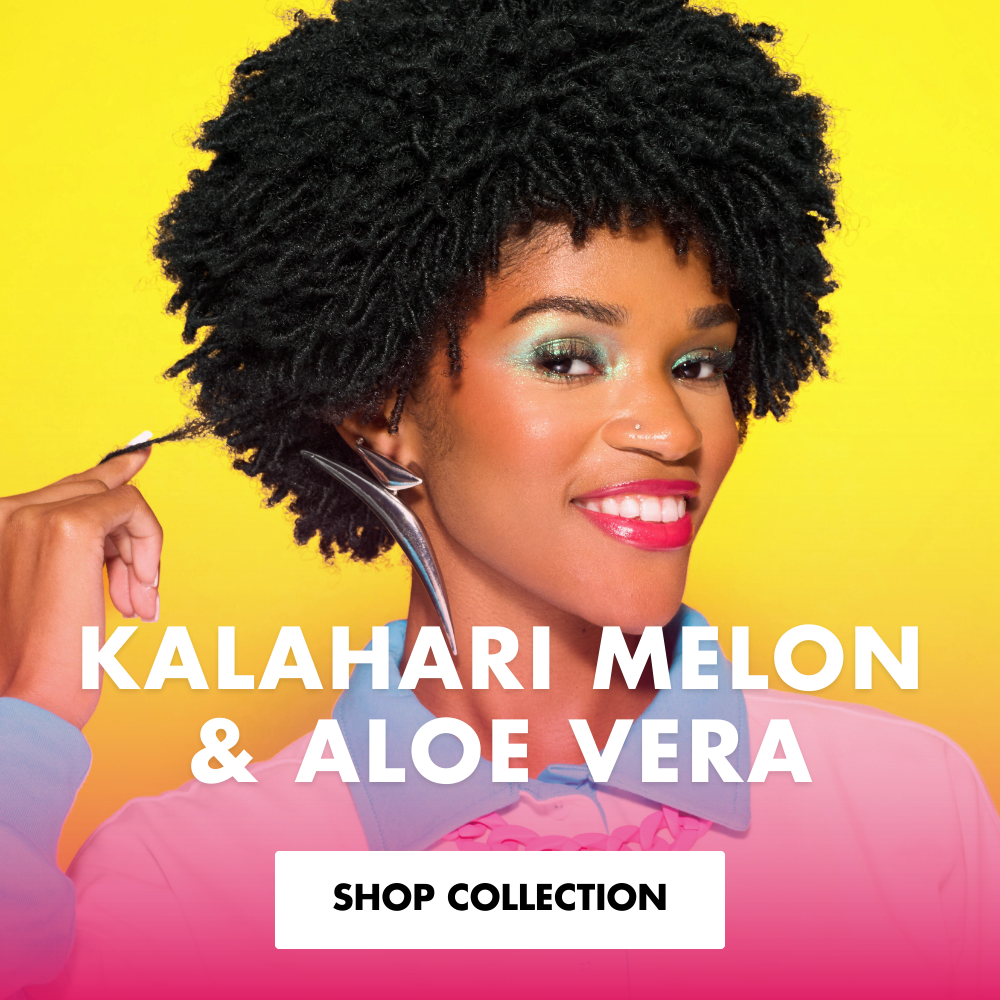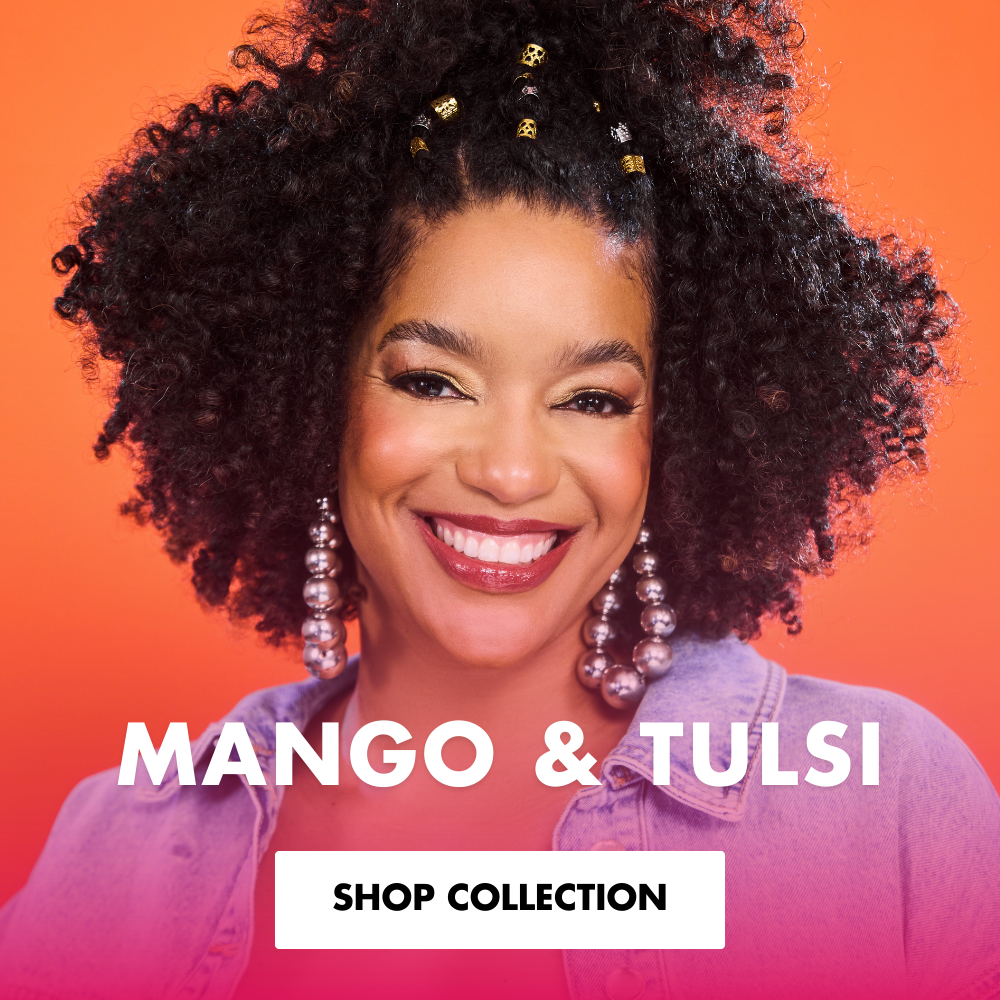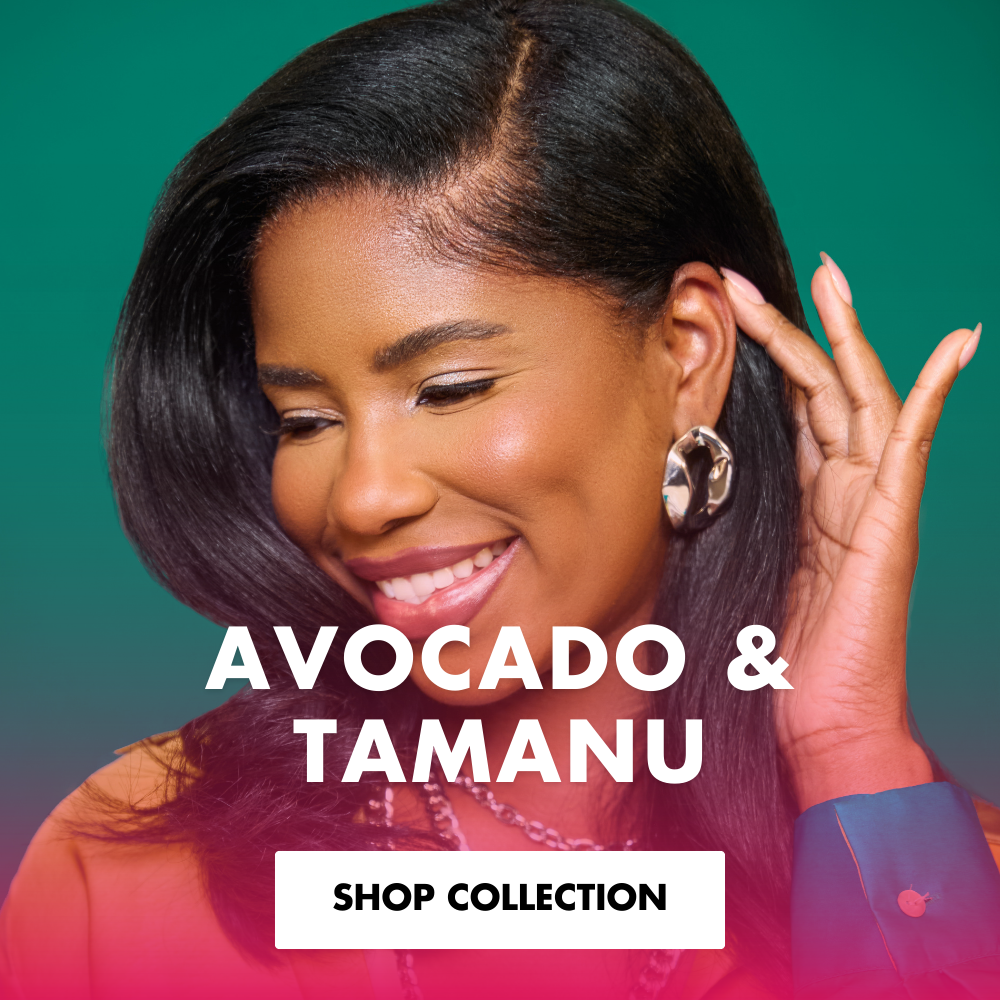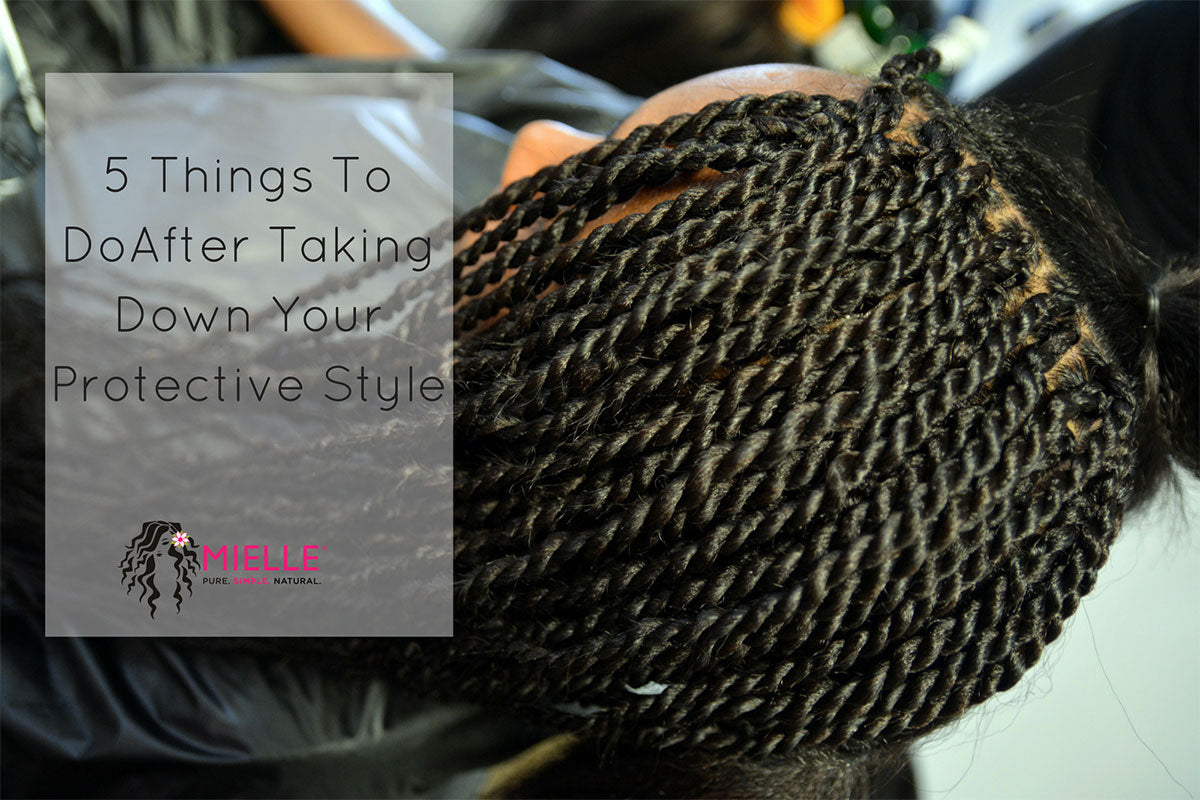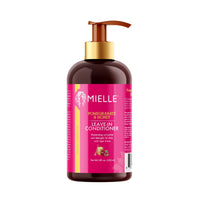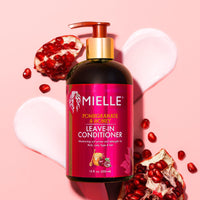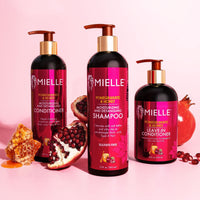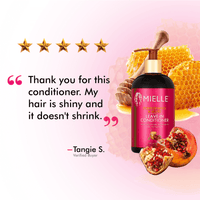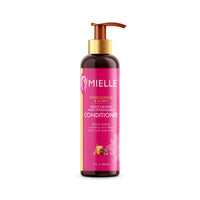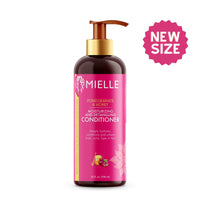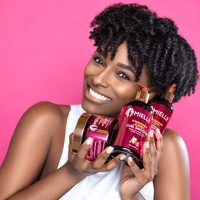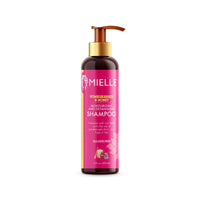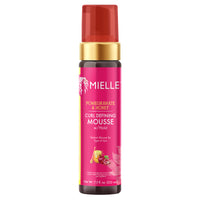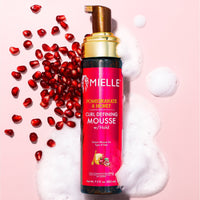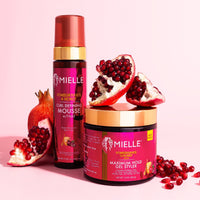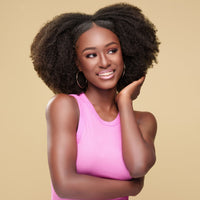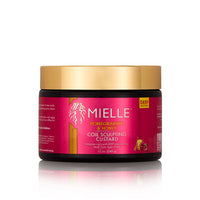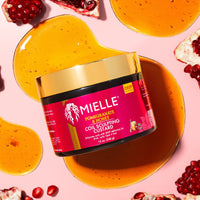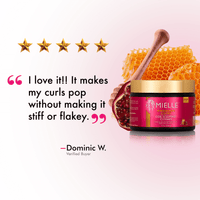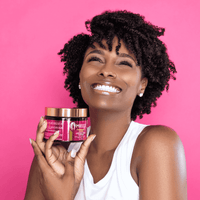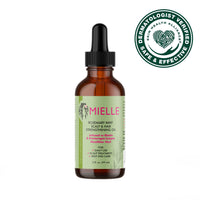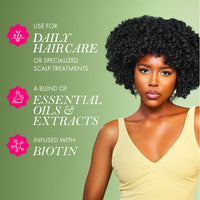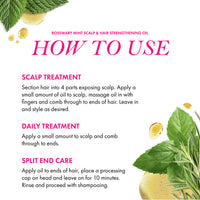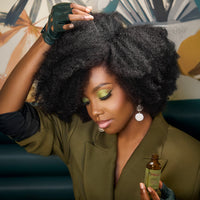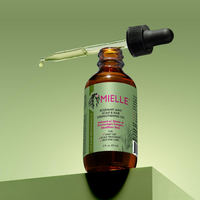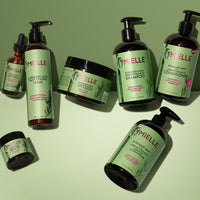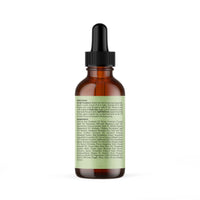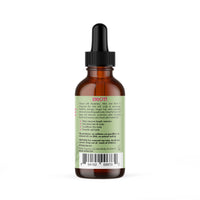Shop
New Arrivals
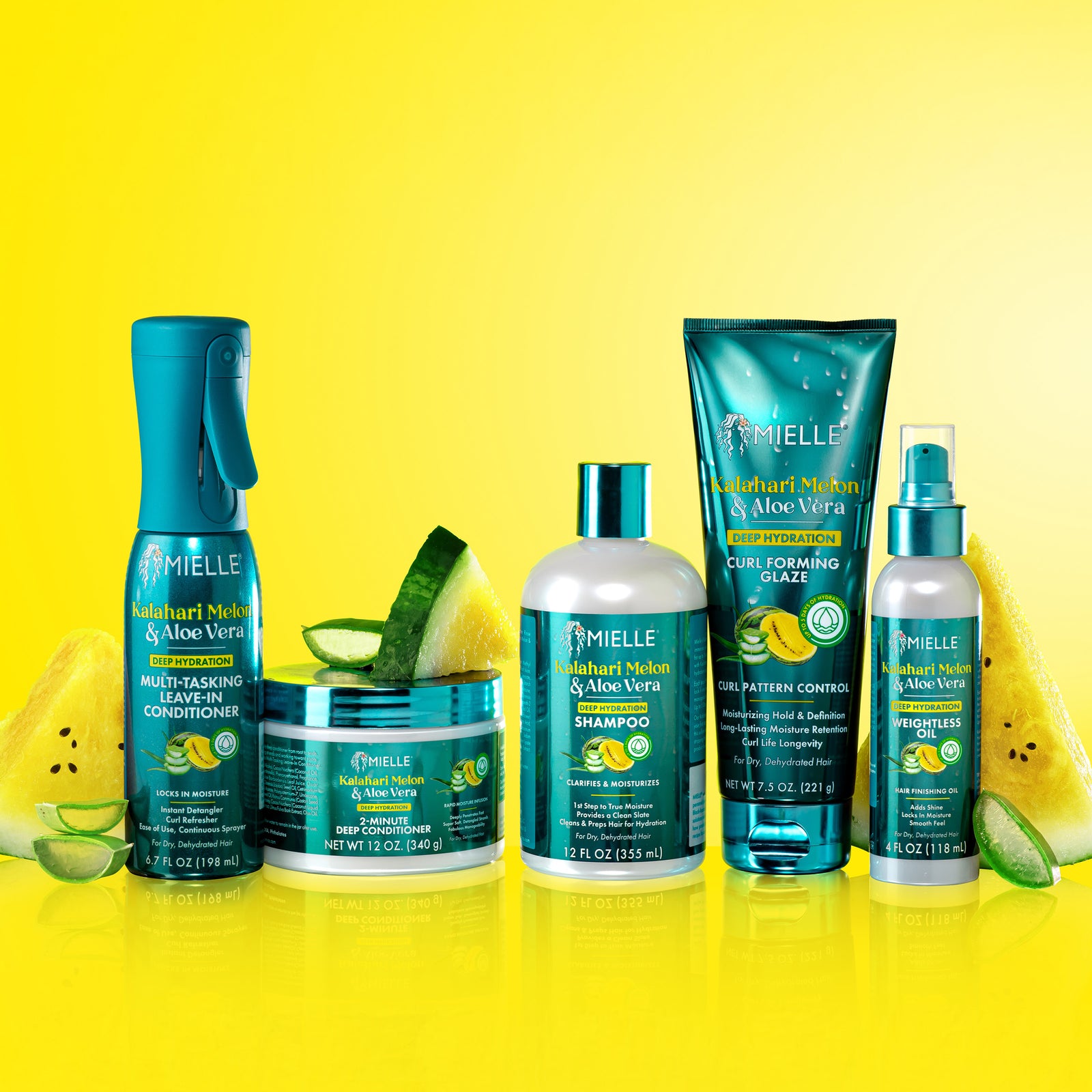
NEW! Kalahari Melon & Aloe Vera Collection
Best Sellers
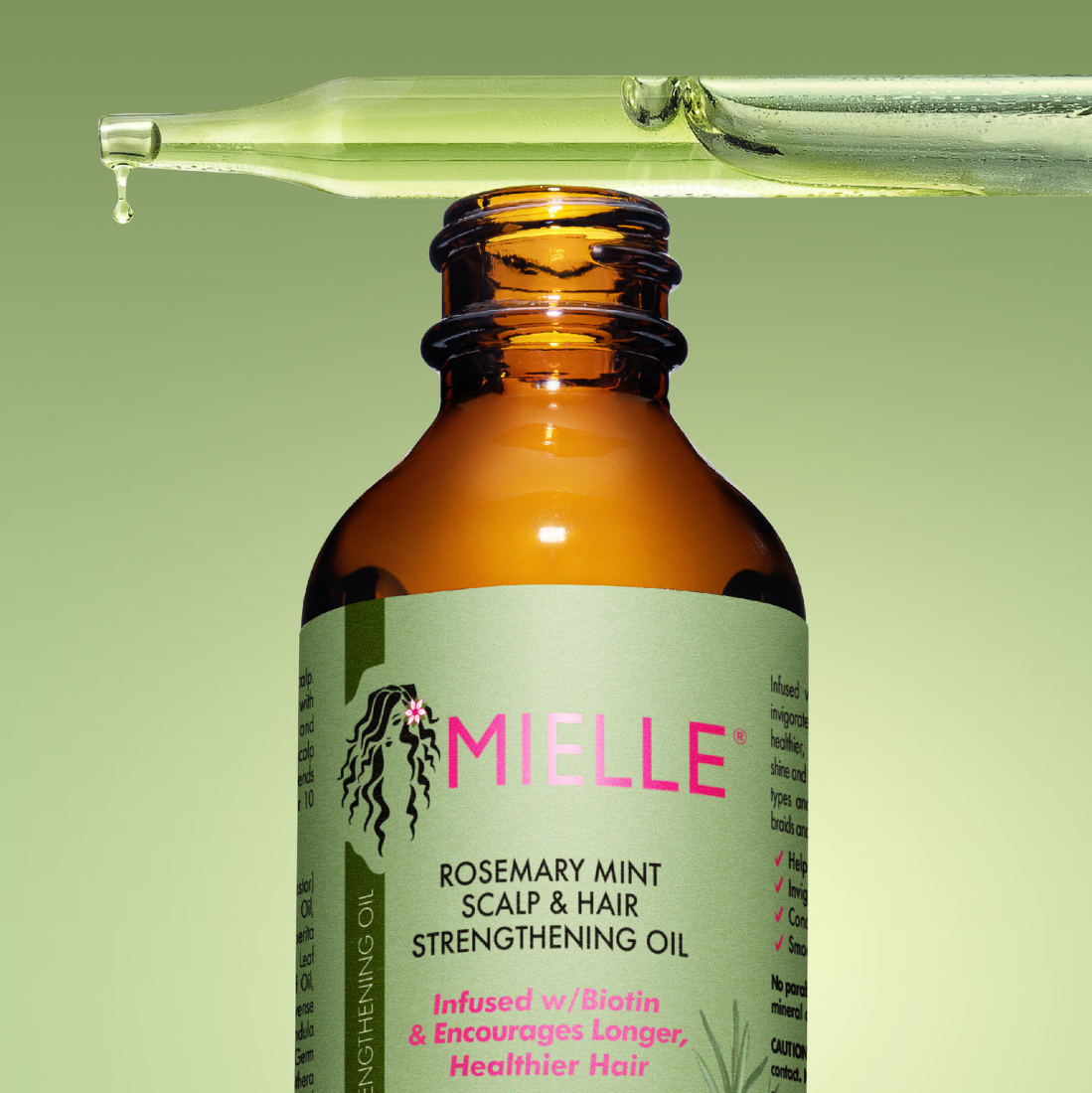
Rosemary Mint Scalp & Hair Oil
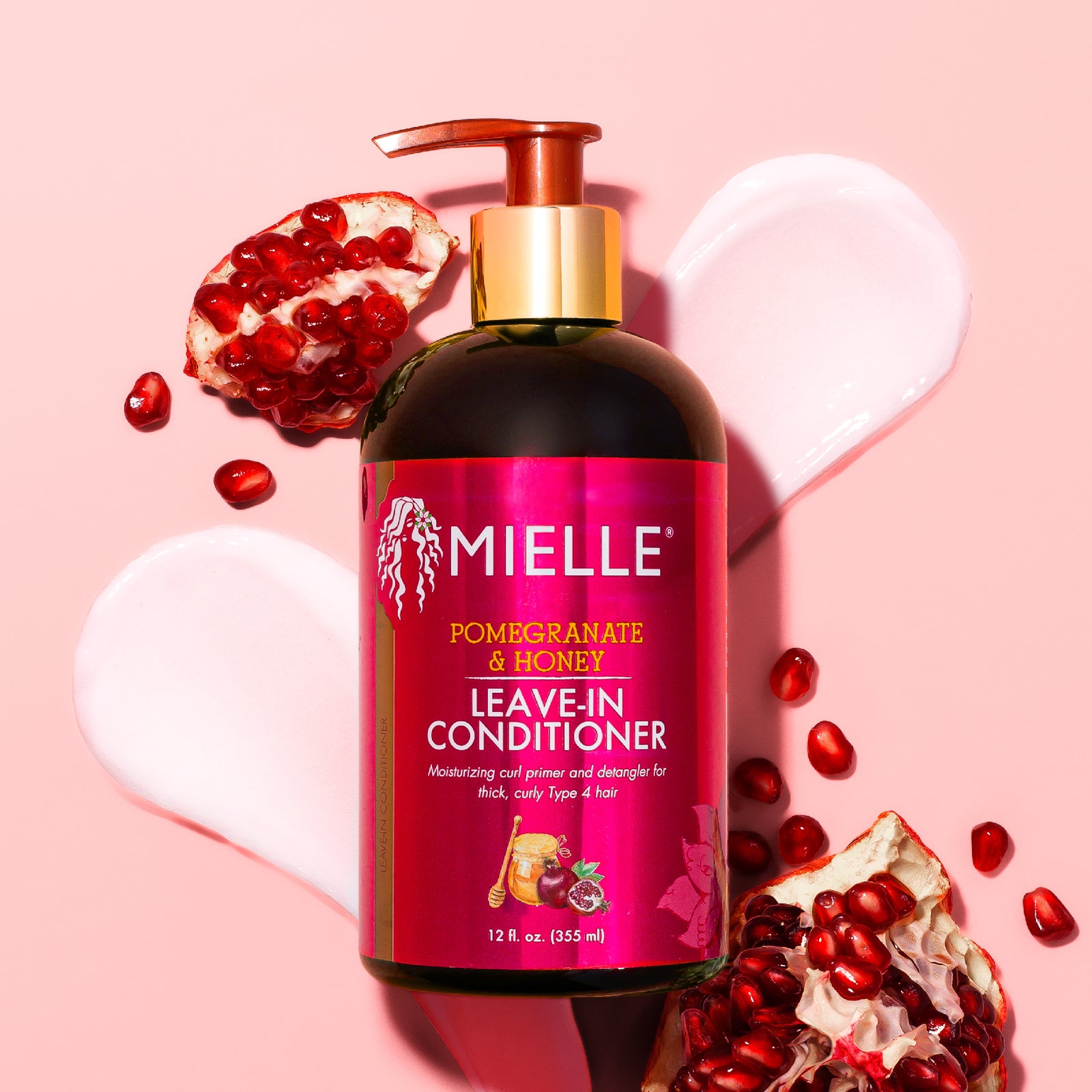
Pomegranate & Honey Leave-In Conditioner
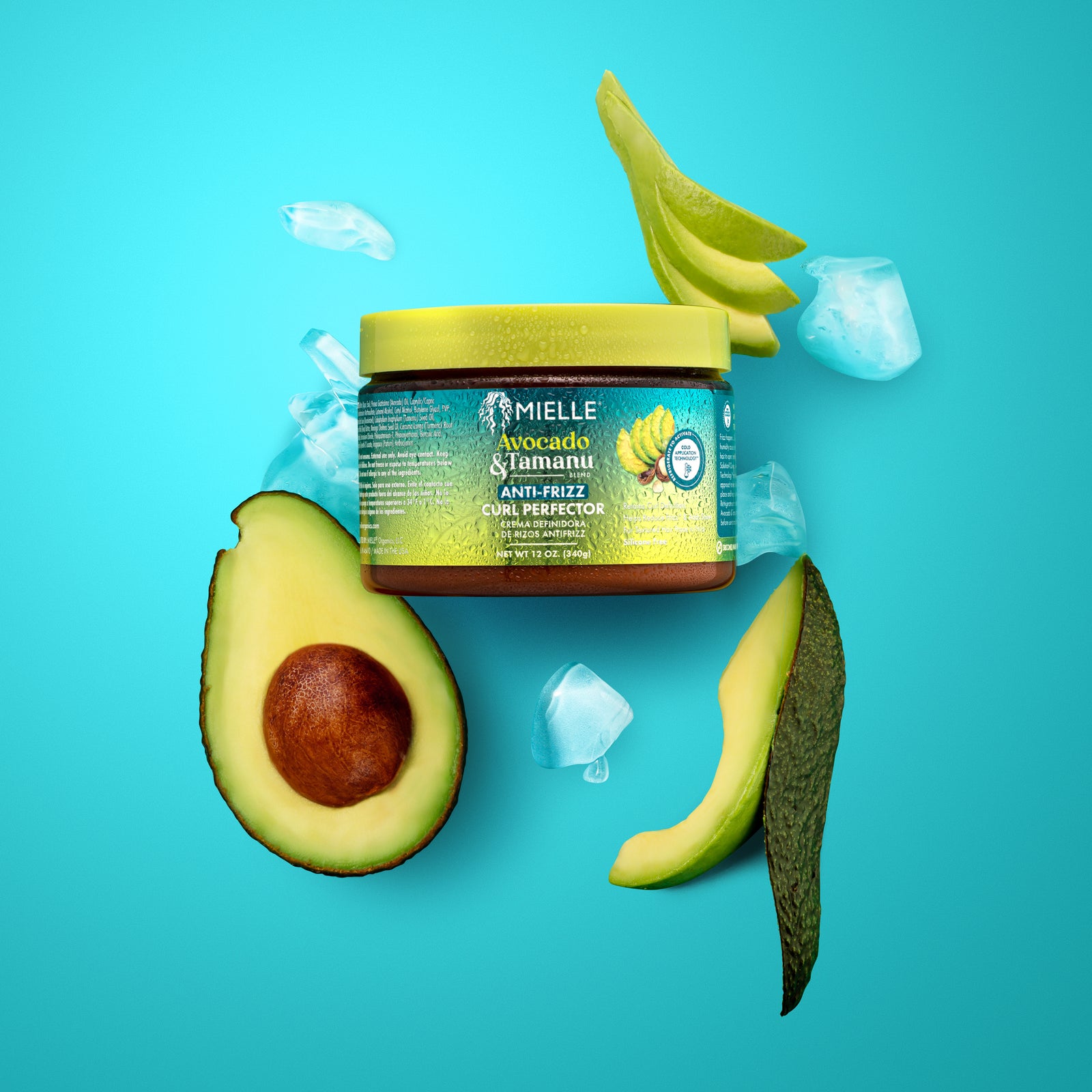
Avocado & Tamanu Curl Perfector
COLLECTIONs

The Benefits of Co-Washing Your Hair
By Toia Barry
If you have curly hair, you’ve probably heard about co-washing, but maybe you’ve never tried it for yourself. So, it’s time to talk about co-washing—and how to not be afraid of it.
What is co-washing hair? Co-washing stands for “conditioner washing,” and it simply means that you wash your hair with a conditioner or natural hair products formulated for co-washing called—you guessed it!—a co-wash.
Today, we’ll discuss the benefits of co-washing hair and why it could be a fabulous addition to your hair routine.
Co-washing Can Get Your Hair Clean (Yeah, Seriously)
You may be wondering how a co-wash can possibly stand a chance against your tried and true dirt-busting shampoos.
The first thing you should know is that co-washing is less effective than shampooing at washing your hair.
But that isn’t a bad thing.
While not all shampoos are created equal (shampoos full of sulfates tend to be more oil-stripping), shampoos can be very harsh on your hair and scalp.
So, how can a conditioner make your hair clean? Here’s a very simple comparison of how shampooing works vs. how co-washing works:
- In order to cleanse your hair, shampoos rely mostly on their strong surfactants—chemical compounds that help strip oil and dirt from your scalp and strands.
- Conditioners or co-washes rely on a combination of gentle surfactants and the power of your fingers to scrub off oil while maintaining healthy levels of moisture in your hair.
Most conditioners and all co-washes have surfactants like shampoos. They’re much gentler but still effective at washing your hair.
Moisture, Moisture, Moisture
If you ask anyone who co-washes about the biggest benefits of co-washing curly hair, they’ll probably say one thing—moisture.
When you wash your hair with shampoo, you are removing the yucky stuff like excess oils, dirt, and grime from your scalp. So, is shampoo bad for your hair? Traditional shampooing can take away the bad stuff, but it also removes some of the good stuff from your hair. So you wind up throwing out the baby with the bathwater, so to speak.
What’s the good stuff? Sebum! Sebum is the oil that comes from your scalp. As it travels down the hair strand, keeping hair soft, protected, and moisturized.
That doesn’t always happen for curly hair.
Curly hair bends, curves, and zig-zags (which is why we love it!), but all of those gorgeous curves make it difficult for your sebum to travel all the way from your scalp to your ends.
Because sebum often doesn’t make it to the end of a curl, curly hair tends to be drier than straight hair. You may be experiencing dryness if your hair:
- Looks dull
- Feel roughs
- Breaks or splits easily
Co-washing is a gentler wash that helps you retain that good stuff while still clearing away the bad stuff.
Benefits of Moisturized Hair
Why does hair have to be moisturized anyway? Here’s a list of how proper moisture can benefit your hair:
- Better curl definition – Curl definition doesn’t just come from styling products. Moisture helps to define curls of all shapes and patterns. If you’re using all the stylers in the world and still longing for a good curl day, the problem might be in your cleansing routine.
- More shine – All that protective sebum you’re keeping on your strands can lead to shinier, healthier-looking hair.
- Softer hair – Moisture fosters “soft hair,” whatever it means for you, whether silky, cottony, spongy or anything in between. Whatever your texture, all hair types are at their best when moisturized.
- Less hair breakage and better length retention – Sometimes, we get frustrated at our hair for not “getting longer,” but the key to unlocking your length might just be moisture. Moisturized hair is the foundation for retaining that length by avoiding breakage.
- Less tangling – Moisturized curls will more easily slide past one another. Dry strands wind up catching onto each other, linking up, and starting a tangle party that you have to break up like a curly-coily bouncer.
Washing More Often
Is it bad to wash your hair every day? To avoid over-stripping your hair (and spending an hour detangling your hair, let’s be honest), you probably wash it once a week? Maybe twice? Some curly girls regularly wait two weeks before washing their hair all to retain that much-needed moisture.
By incorporating co-washing into your cleansing routine, it’s very unlikely that you’ll over-strip your hair. It’s called “conditioner washing,” after all. That means you’ll probably feel comfortable washing your hair two to three times a week. This can be convenient if you exercise often or if you tend to have a sweaty scalp and you can’t wait the whole week to refresh.
Not only can your hair fall in love with all the extra conditioner, but it will also swoon over all the extra water you’re giving it through frequent showers. You know better than most how thirsty your curls are for the foundation of moisture—water!
Easier Detangling
Right now, you may be thinking, “Wait, you said co-washing would make me want to wash my hair more often, but who wants to detangle three times a week?”
Detangling is often a chore for many naturals because of the length of time between washes. When your hair goes a week or more without conditioner and water (or very little water if you’ve been good about spritzing), your tangles multiply.
Five to seven days is plenty of time for your curls and coils to link up and get cozy in tangle after tangle.
Co-washing several times a week allows you to put your fingers through your hair every so often, so your detangling sessions become shorter.
But even if you stick to a pretty moderate washing schedule, introducing more conditioner to your routine will reduce friction between your strands, making it easier for you to detangle.
Curls That Won’t Quit
Lack of definition or “frizz” is a natural part of curly hair, and you probably can’t eliminate it completely—nor should you! Be proud of the volume your hair can achieve!
However, if you feel that your curls just aren’t popping to their full potential, a major reason for this could be dryness.
Now, we won’t dive too deep, but there are two scientific reasons your hair may be lacking definition:
- An unsealed cuticle – Each strand of hair has cuticles on the outside. Cuticles are like the shingles on a roof. They are layers of protein that overlap each other, and they protect your hair best when they are smoothed down. Smoothing is what conditioners do best. Cuticles that are raised may show up as “frizz.”
- Static-y hair – Conditioners make your hair anti-static. Hair tends to have a negative electrical charge due to lack of moisture or simply interaction with the environment. Conditioners are positively charged, so they neutralize your hair and prevent static.
Ultimately, introducing more conditioner into your routine can address the underlying issues that keep your beautiful curls in hiding.
Using Less Product
Healthy hair starts in the shower, and a good wash day can create several good hair days throughout the week.
So, with all the moisture you are getting from co-washing, you shouldn’t have to pack on the moisturizers once you get out of the shower.
Because co-washing is so moisture-intensive, it can also ensure that your curl definition is in tip-top shape. When it comes to styles that depend on the definition of your natural curl pattern (like a wash-and-go), your curls should be in good hands.
Still, if you enjoy the weight and lasting hold you get from a gel or heavy curl cream, consider switching off equally between co-washing and shampooing to clear away product buildup.
Co-Washing Wisely
Alright, not to be a party pooper, but as the saying goes, “everything in moderation.” You can definitely have too much of a good thing—like brushing or protein treatments or protective styling (to whoever needs to hear this: it’s been eight weeks, it’s time to take down those twists). So that brings us to how to co-wash hair.
Co-washing is the same way. If you’re constantly asking how often should you wash curly hair, co-washing might be a great alternative for you. Here’s what to know to ensure you’re getting the most out of your co-washing practice.
Monitor Your Moisture
Co-washing incorrectly can put your hair at risk of moisture overload, also known as hygral fatigue. This is caused by wetting the hair too often. When you wet hair, it swells, then shrinks as it dries. Doing this too often can damage your hair’s elasticity.
Some people may be able to co-wash every other day or even daily with no problem, but everyone’s strands are different. Keep an eye out for these signs of moisture overload:
- Mushy or limp hair strands
- A lack of bounce in your curl pattern
- Hair that takes longer to dry
Some signs of hygral even look a lot like the signs of dry hair:
- Dullness
- Hair breakage
- Lack of definition
- Tangling
You can avoid hygral fatigue by:
- Washing less frequently – Consider capping your wash days at three times a week.
- Clarifying regularly – Sometimes, hygral fatigue can actually cause dry hair by making the inside of the hair strands too sealed off to moisture. This is caused by a buildup of moisturizing and conditioning products, so every once in a while, use a shampoo to clarify. Mielle’s Mongongo Oil Exfoliating Shampoo is a fantastic, sulfate-free choice.
- Using a lighter product – You may experience hygral fatigue if the conditioner you are using to co-wash is too heavy for you. You can try a lighter conditioner or switch to a co-wash specifically formulated for cleansing hair without causing buildup.
Mielle’s Got Your Back
If you’re now a co-washing convert, welcome to the crew, and we hope you enjoy your stay. But, you can’t just leave without the tools for success.
Conditioners are one of the most important products for a curly girl. Mielle Organics knows that and provides a variety of curl-loving conditioners that feature sweet almond oil, jojoba oil, coconut oil, and many more of nature’s best ingredients.
If you’re looking to get all your co-washing needs in one bottle, take a look at Mielle Organics’ best co-wash for curly hair, the detangler for natural hair, and reap all the best benefits of co-washing.
Sources:
- International Journal of Trichology. Hair Cosmetics: An Overview. https://www.ncbi.nlm.nih.gov/pmc/articles/PMC4387693/
- The Trichological Society. Surfactants and Shampoos. https://www.hairscientists.org/surfactants-and-shampoos
- ThoughtCo. How Shampoo Works. https://www.thoughtco.com/how-shampoo-works-607853
- ScienceDirect. Cationic Surfactants. https://www.sciencedirect.com/topics/pharmacology-toxicology-and-pharmaceutical-science/cationic-surfactants#:~:text=Cationic%20surfactants%20are%20essentially%20quaternary,%2C%20cetrimonium%20and%20cethexonium%20bromides
- Byrdie. This Is the Real Difference Between Co-Wash and Conditioner, According to Natural Hair Experts. https://www.byrdie.com/co-washing-natural-hair
- Byrdie. 10 Co-Wash Mistakes to Avoid for the Healthiest Hair. https://www.byrdie.com/co-wash-mistakes-to-avoid-for-the-healthiest-hair-400127
- Healthline. What is Hygral Fatigue and How Does it Affect Hair? https://www.healthline.com/health/hygral-fatigue#causes

 SALE
SALE
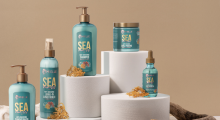 Shop By Category
Shop By Category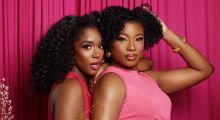 Shop By Hair Texture
Shop By Hair Texture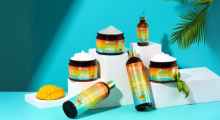 Shop By Collection
Shop By Collection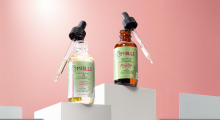 New & Best Sellers
New & Best Sellers Product Safety
Product Safety

